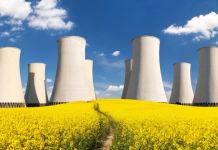Biofuel is an organic fuel, which is produced from a raw material of vegetable or animal origin and from wastes of industrial production. It is a refurbishable resource that can produce energy without harm for the environment. Unlike the other types of fuel, such as oil or coal, which have occurred as a result of geological processes, biofuel is produced on the basis of a modern biological interaction.
Varieties of biofuel
Biofuel can have the aggregate state, which depends on the direct use of the resource in one way or another industry. There are next varieties of biofuel:
- Solid – traditional energy sources are the wood processing products (wood, pressed pellets and briquettes);
- Liquid – alcohol mixtures, ethers;
- Gaseous – various gas compounds which are obtained by thermal decomposition of reacting with pyrolysis (oxygen-free) gasification (oxygen) during the fermentation process (interaction bacteria).
To the advantages of biological fuel it is possible to take next criteria:
- Recoverability and cyclical o resources. Taking into account limit nature of other types of fuel, bio has a cyclical nature, therefore, it can be argued that it will never end. Human activity will always have a waste product, thus creating an excellent basis for the production. Particularly “rich” for raw materials is an agriculture, because humus, crop residues and animal waste products are constantly being created during the working process.
- Reduction of greenhouse gas emissions, the impact on the atmosphere. Fossil fuels (coal, oil) during the combustion emits a large amount of carbon dioxide in air. Such manipulations promote occurrence of ozone holes in the atmosphere influence the development of the world’s global warming, air quality deteriorate. According to the researchers, in contrast to fossil fuels, bio can reduce the amount of greenhouse gas emissions to a value of 65%. During crops for bio-fuel cultivation is absorbed by carbon monoxide, which has a positive effect on the atmosphere and air in general.
- Economic security and stability. Not every country is rich in oil reserves, some do not have such deposits. And then in the course of the game enter the trade relations between other states, being established import and export routes. Procurement and processing of raw materials significantly influences the country’s budget, creating economic hole. Biofuels provides an opportunity to gain economic independence and environmental security, as decomposition products less harmful to the surrounding environment, or not affect it at all. Thus, the population is provided stable jobs, since resources require treatment.
- Transport and biofuels. Now this type of fuel is not particularly popular in Ukraine, although it is gaining gradual turns. Experts and car owners argue that it is perfectly adapted to the machines of the old and new models, thus there is a reduction of harmful emissions into the atmosphere, because the resource is environmentally friendly. Thanks to its special composition, biofuels saves on maintenance. In the future, biofuels will become available to each driver and its value is much petrol yield.
To the disadvantages of biological fuel it is possible to take next criteria:
- The food crisis. For the cultivation of raw materials needed to occupy large areas of land that could be used for planting of crops to be sold in the food industry. Given the trend of increasing number of the world’s population, over time, this problem can be catastrophic.
- The problem of monoculture. Economically profitable to grow one type of culture, but it contributes to many problems. Insect pests adapt to the new conditions and can destroy the entire crop culture. In this case, actively used pesticides that contaminate the soil and inland waters. However, pests eventually get used to the “protective mixtures” and no longer respond to them, continuing to destroy the culture, because the mono-planting of the fields does not imply a separation of the different representatives of the cultivated plants.
- Changes in the microenvironment of the soil, the impact on the environment. During the preparation of land for growing crops destroyed animal habitats, which may influence the development of entire populations. This procedure requires a large-scale processing of land, and therefore the use of machinery that emits harmful substances into the atmosphere. A significant negative impact on the ecology of the environment makes use of pesticides that disrupt the microflora of soils and inland waters.
- Natural factors. Not every area is suitable for growing crops. For example, place a dry and cold climate is not suitable for such activities, and certain types of crops can destroy local flora, thus breaking the balance of life and threatening some species of animals.
- Deforestation. Expensive “traditional” fuel makes the population use wood yak energy source. This leads to the threat of destruction of entire forests, since forestry is not able to quickly restore lost resources.
Biofuel is a new milestone in the history of civilization. This resource is not a panacea for all human problems. However, a reasonable approach to the production of biofuels is able to solve the economic and environmental disaster of mankind.























